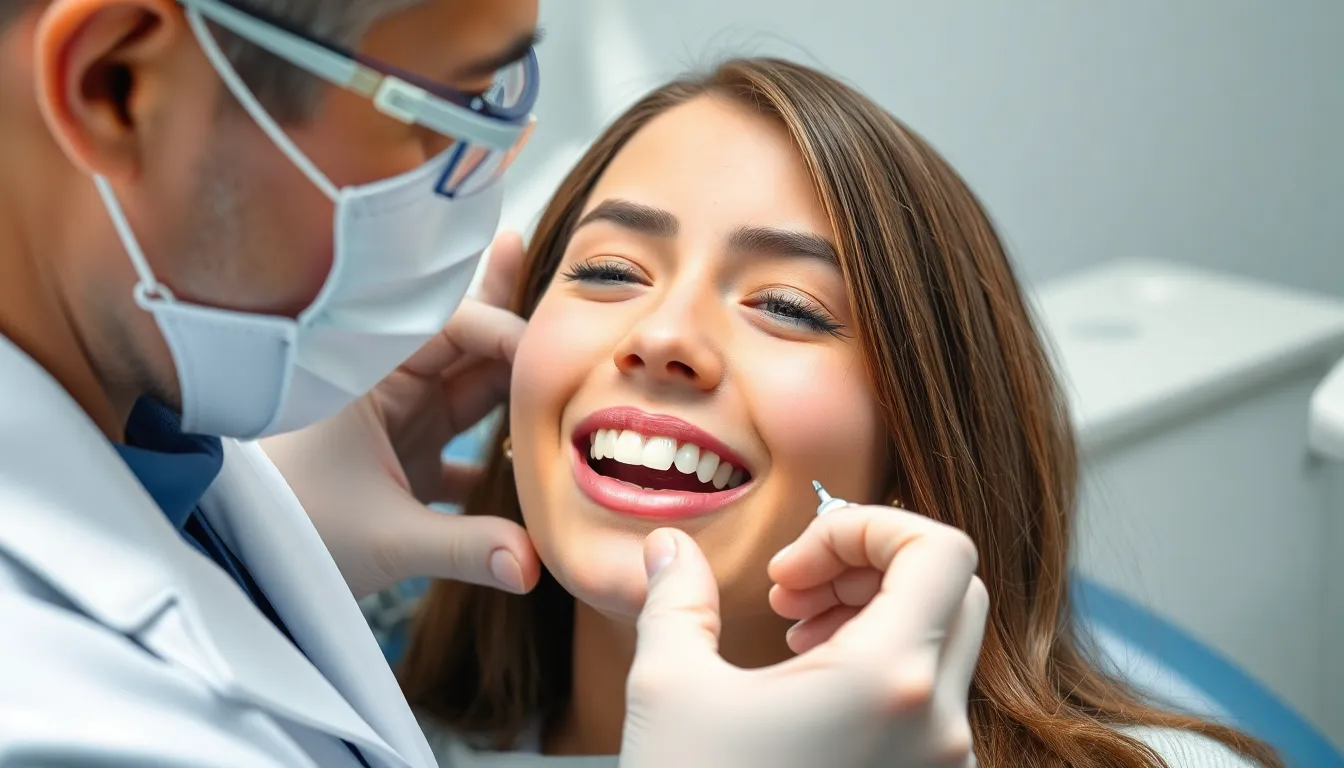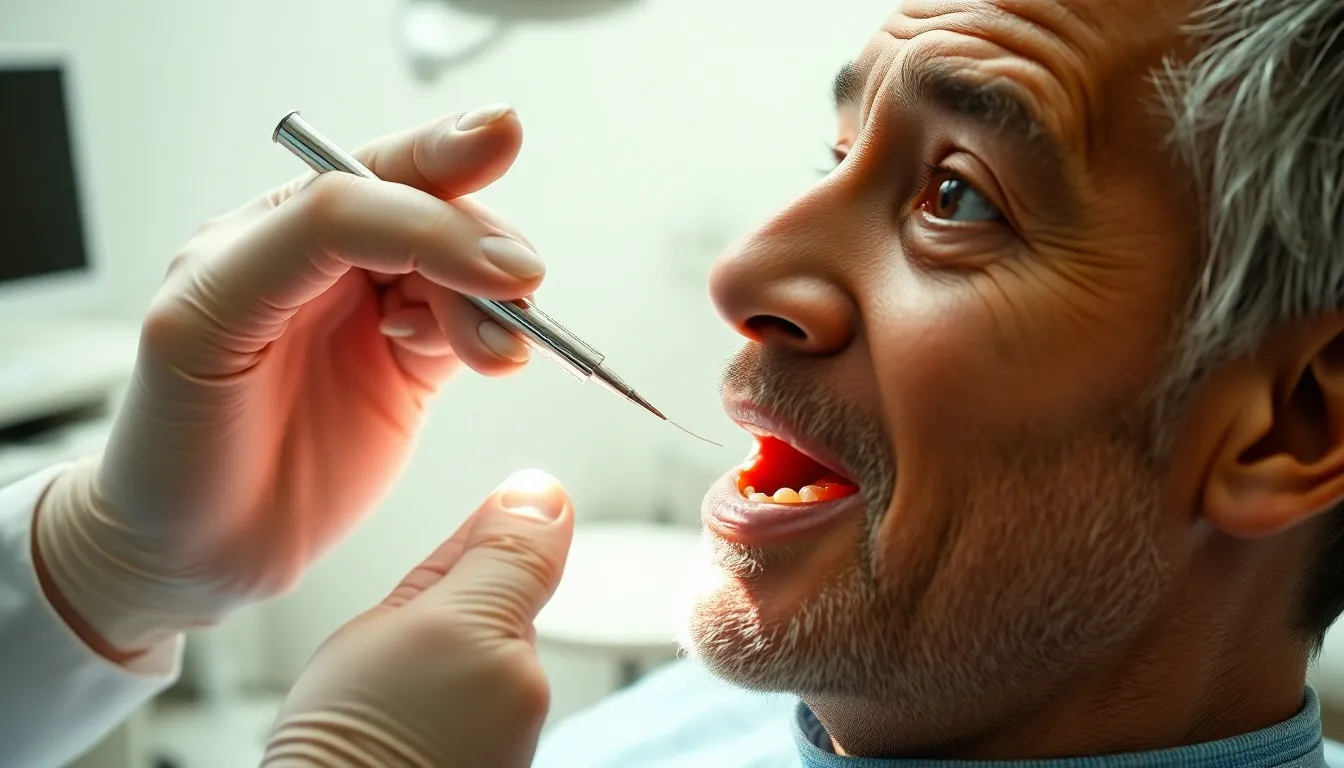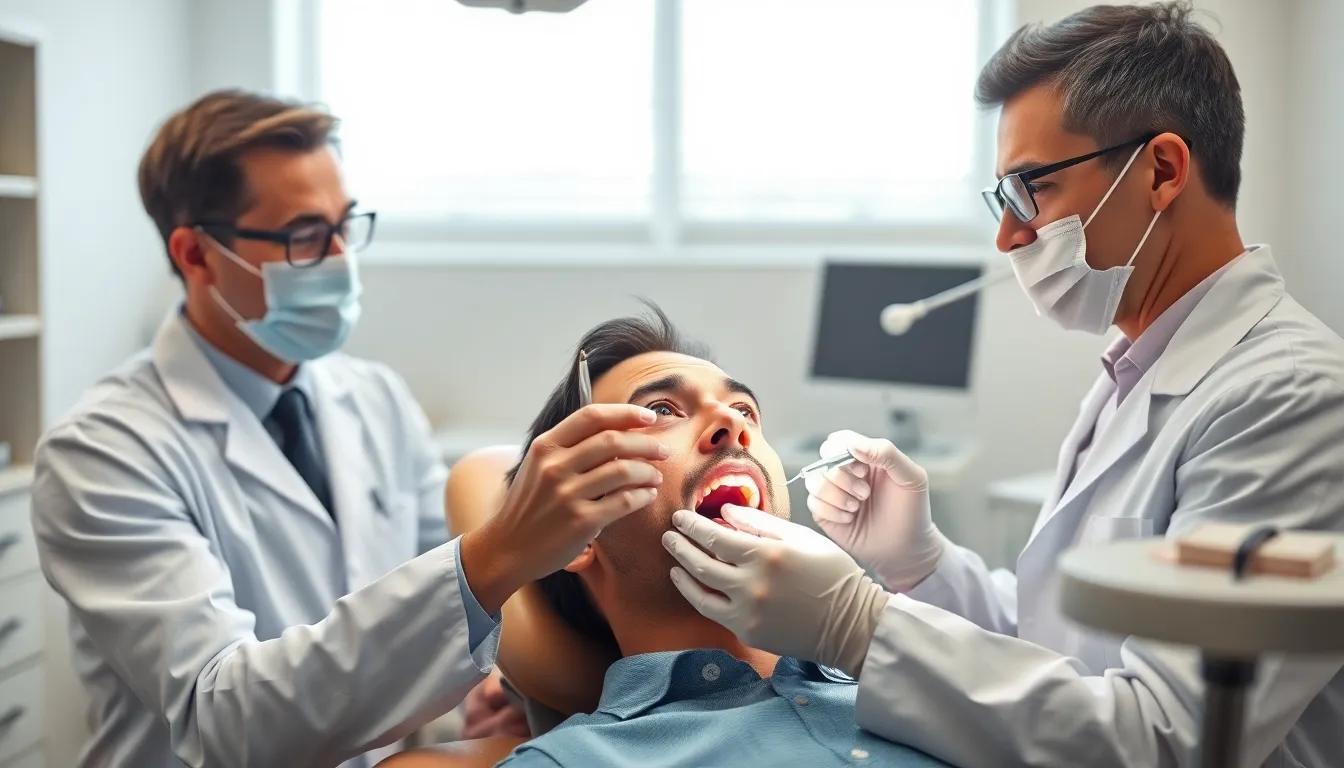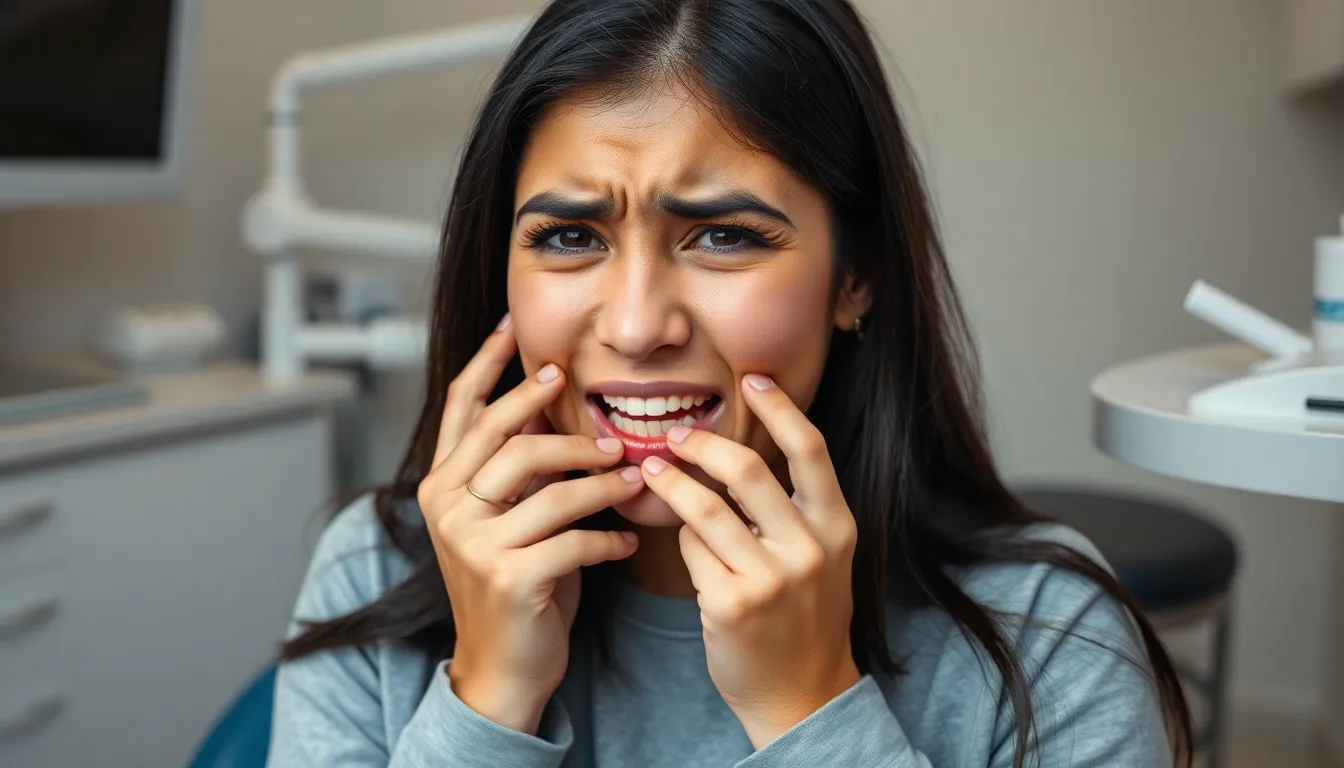Are you experiencing that uncomfortable jaw popping while eating? That clicking or popping sensation when you open your mouth to enjoy a meal can be both annoying and concerning, especially when it’s accompanied by pain or limited movement.
Jaw popping, medically known as temporomandibular joint (TMJ) disorder, affects millions of Americans each year. The good news is that understanding the causes—whether it’s teeth grinding, arthritis, or injury—can lead to effective treatment options. In this text, we’ll explore why your jaw makes those unsettling sounds and what you can do to find relief so you can get back to enjoying your meals without distraction.
Understanding Jaw Popping While Eating
Jaw popping describes that distinctive clicking or popping sound your jaw makes during eating or speaking. This sensation often stems from the temporomandibular joint (TMJ), which connects your jawbone to your skull. Many patients report experiencing this symptom particularly when chewing tough foods or opening their mouths widely.
One of my patients, Sarah, described her experience: “I first noticed the popping while enjoying a crunchy apple. Each bite produced an audible click that my family could hear across the dinner table. It wasn’t painful at first, but eventually became concerning when I started feeling discomfort.”
TMJ disorders affect approximately 10 million Americans, with jaw popping being one of the most common symptoms. The popping sound occurs when the disc inside your TMJ becomes displaced during movement, causing it to snap back into position with an audible noise. Understanding the mechanics behind this symptom helps identify appropriate treatment approaches.
Anatomically, your TMJ functions as a sliding hinge with a cushioning disc between the bones. When this disc moves out of its proper alignment, it creates the characteristic popping sensation. Various factors contribute to this misalignment, including muscle tension, arthritis, structural abnormalities, or injury to the joint.
Jaw popping ranges in severity from occasional clicking without pain to frequent popping accompanied by important discomfort and restricted movement. Distinguishing between harmless clicking and problematic popping is crucial for determining whether medical intervention is necessary.
Common Causes of Jaw Popping

Jaw popping while eating stems from several underlying conditions affecting the temporomandibular joint. Understanding these causes helps identify appropriate treatment options for your exact situation.
Temporomandibular Joint Disorders (TMJ)
TMJ disorders represent the most common cause of jaw popping during meals. These disorders affect approximately 10 million Americans and typically develop from multiple factors including trauma, chronic stress, and habitual behaviors. Teeth clenching and grinding place excessive strain on your jaw joints, gradually wearing down components that normally ensure smooth movement. Repetitive actions like chewing gum or biting nails can similarly contribute to joint dysfunction. The popping sound occurs when joint components become misaligned during movement, creating the characteristic click as they snap back into position.
Misaligned Bite or Teeth
A malocclusion significantly alters your jaw’s natural movement patterns during chewing. When your teeth don’t align properly, your TMJ must compensate by shifting into unnatural positions with each bite. This improper movement forces the joint to work harder than intended, often resulting in audible clicking or popping sounds as it moves out of and back into its socket. Dental issues like missing teeth, poorly fitted dental work, or developmental jaw problems can all contribute to this misalignment.
Arthritis and Other Inflammatory Conditions
Arthritis damages the protective cartilage within your temporomandibular joint, creating rough surfaces where smooth movement should occur. Rheumatoid arthritis and osteoarthritis particularly affect this delicate joint, reducing the cushioning between bone surfaces and causing friction that manifests as popping sounds. Joint inflammation leads to additional symptoms including stiffness, decreased mobility, and pain that worsens throughout the day. Inflammatory conditions require professional medical intervention due to their chronic, progressive nature that can cause permanent joint damage if left untreated.
Symptoms Associated With Jaw Popping

Jaw popping while eating often signals temporomandibular joint (TMJ) dysfunction, with various accompanying symptoms that can range from mild to severe. Understanding these symptoms helps identify when jaw popping requires medical attention rather than being a harmless occurrence.
Pain and Discomfort
Pain around the jaw area commonly accompanies popping sounds when you’re eating or speaking. Many TMJ disorder sufferers report aching sensations that radiate from the jaw to the face, temples, and ear regions. The discomfort typically intensifies during meals, especially when chewing tough foods like steak or crusty bread. Dr. Todd B. Harris notes, “Patients often describe a sharp pain that occurs precisely at the moment of the ‘pop,’ followed by a dull ache that persists afterward.” Some individuals experience tenderness in the jaw muscles that worsens throughout the day, particularly during stressful situations that may trigger unconscious jaw clenching.
Limited Jaw Movement
Restricted mobility of your jaw represents another important symptom associated with jaw popping. The temporomandibular joint may temporarily lock in an open or closed position, creating frustrating difficulties with everyday activities. Opening your mouth widely for yawning or biting into a sandwich becomes challenging when the jaw’s range of motion decreases. One patient, Michelle, shared her experience: “I couldn’t open my mouth more than an inch without hearing a loud pop, and sometimes my jaw would get stuck halfway through a bite of food, forcing me to manually shift it back into position.” Measuring your maximum mouth opening (normal is approximately 35-55mm) provides a useful indicator of TMJ restriction severity. Morning stiffness often affects TMJ disorder patients, with the jaw feeling particularly rigid upon waking before loosening somewhat throughout the day.
When to Seek Medical Attention

Jaw popping accompanied by pain requires prompt medical evaluation, as this combination often indicates a more serious temporomandibular disorder requiring treatment. Pain that radiates from your jaw to your face, neck, or ears shouldn’t be ignored, especially when it interferes with daily activities. Dr. Todd B. Harris, a TMJ specialist, notes: “Many patients tolerate jaw clicking for years before seeking help, but waiting until pain develops can lead to more complex treatment needs.”
Emergency care becomes necessary if your jaw locks or pops out of place suddenly. This condition, called acute jaw dislocation, demands immediate professional intervention rather than attempting self-correction, which could worsen the injury. One patient, Michael, experienced this frightening situation during a business lunch: “My jaw locked mid-bite while eating a sandwich. I couldn’t close my mouth and had to go straight to the emergency room where they manually repositioned it.”
Persistent jaw popping that occurs during every meal or conversation warrants professional evaluation, even without pain. Continuous clicking or popping sounds signal ongoing joint dysfunction that may progressively damage the TMJ over time. Your dentist or oral surgeon can identify subtle signs of degeneration before they become painful or debilitating.
Limited jaw movement accompanying the popping sensation represents another important warning sign. If you can’t open your mouth wide enough to eat comfortably or notice a important decrease in your maximum mouth opening (less than 35mm between upper and lower teeth), consult a healthcare professional. These restrictions often indicate disc displacement or muscle dysfunction requiring targeted therapy.
Additional symptoms that should prompt medical consultation include:
- Recurring headaches centered around your temples or back of head
- Frequent ear pain without signs of infection
- Noticeable changes in your bite alignment
- Grinding or crunching sensations when moving your jaw
- Facial muscle fatigue after minimal chewing
Progressive worsening of symptoms over time demands attention from a TMJ specialist. TMJ disorders rarely resolve completely without appropriate intervention, and early treatment typically yields better outcomes with less invasive approaches.
Treatment Options for Jaw Popping

Jaw popping during meals can be addressed through various treatment approaches, ranging from simple at-home remedies to professional medical interventions. Temporomandibular joint disorder (TMD) affects approximately 10 million Americans, causing the uncomfortable clicking or popping sounds many experience while eating.
Home Remedies and Self-Care
Over-the-counter pain relievers like ibuprofen and naproxen effectively reduce inflammation and alleviate jaw pain associated with TMD. Applying ice packs for 10-15 minutes followed by warm compresses for 5-10 minutes provides important relief when repeated several times daily. Dietary modifications play a crucial role in managing symptoms—switching to softer foods and taking smaller bites prevents overextending the jaw and reduces popping episodes.
“I started experiencing jaw popping every time I ate a sandwich,” shares Michael, a patient of Dr. Todd B. Harris. “After adjusting my diet to avoid crunchy foods and implementing daily jaw relaxation techniques, I noticed immediate improvement.”
Keeping your mouth slightly open with space between your teeth helps relieve pressure on the jaw joints throughout the day. Stress management techniques including meditation, deep breathing exercises, and regular physical activity can significantly reduce teeth grinding and jaw clenching that worsen TMD symptoms. Limiting activities that require wide mouth opening such as yelling or chewing gum helps prevent symptom flare-ups.
Maintaining proper posture contributes to facial alignment and reduces jaw strain. Facial stretches, massage, and specialized exercises under the guidance of a healthcare professional improve jaw function and flexibility while decreasing popping sensations.
Professional Medical Interventions
Prescription medications become necessary when over-the-counter options fail to provide relief. Muscle relaxants and stronger anti-inflammatory drugs target persistent jaw pain and dysfunction more effectively than their OTC counterparts. Mandibular splints or custom-fitted mouth guards prevent nighttime teeth grinding and clenching, allowing the jaw joint to heal properly.
Physical therapy programs specifically designed for TMD patients focus on restoring normal jaw movement patterns and strengthening supporting muscles. Dr. Harris notes, “Many patients experience dramatic improvement after just 4-6 weeks of targeted physical therapy combined with proper at-home care.”
Surgical options remain reserved for severe cases where conservative treatments prove ineffective. These procedures range from minimally invasive arthroscopic surgery to complete joint replacement depending on the extent of joint damage. Early intervention prevents permanent damage to cartilage and bone within the jaw joint, making timely treatment essential.
Persistent or painful jaw popping requires professional evaluation by a dentist or oral surgeon specializing in TMD. These specialists can accurately diagnose the underlying cause and develop a comprehensive treatment plan customized to your exact condition.
Prevention Strategies
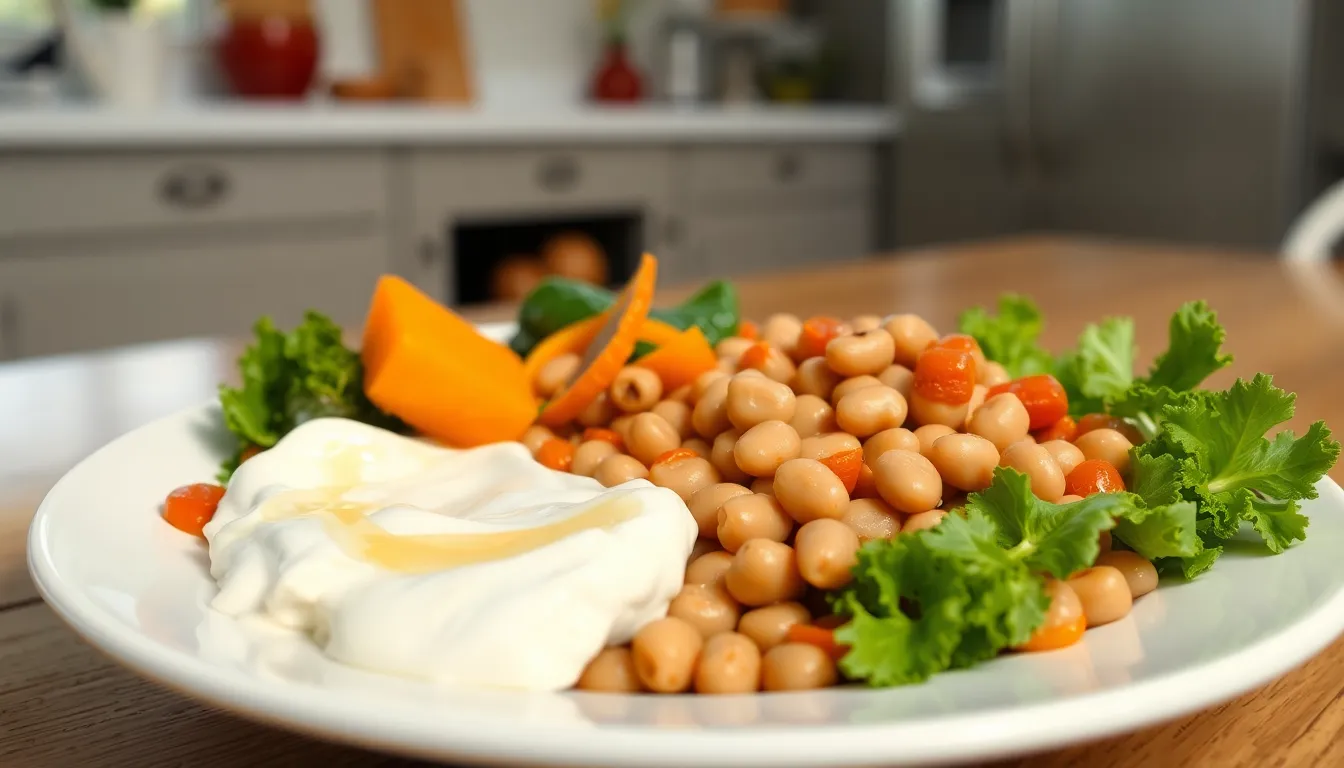
Preventing jaw popping while eating starts with making strategic dietary choices. Foods that require extensive chewing or wide mouth opening often trigger TMJ symptoms. Soft foods like yogurt, cooked vegetables, and beans reduce strain on your jaw joint by requiring less forceful chewing.
“I see patients daily who’ve significantly reduced their jaw popping simply by modifying their diet,” explains Dr. Todd B. Harris. “One patient, Michael, eliminated his persistent clicking by avoiding hard pretzels and raw carrots for just two weeks.”
Avoiding habits that strain the temporomandibular joint provides substantial relief for many sufferers. Repetitive activities like gum chewing, nail biting, and teeth grinding wear down the joint over time and worsen popping sensations. Maintaining a relaxed jaw position with teeth slightly apart when not speaking or eating decreases pressure on the TMJ.
Stress management techniques directly impact jaw health since tension often manifests as jaw clenching. Meditation, regular physical activity, and deep-breathing exercises effectively reduce unconscious jaw tightening that contributes to popping. Good posture supports proper facial alignment, minimizing strain on the jaw joint during daily activities.
Heat and cold therapy offers quick relief when symptoms flare up. Alternating warm compresses to relax tense muscles with cold packs to reduce inflammation alleviates discomfort associated with jaw popping. Being mindful not to overextend your jaw during eating, talking, or yawning prevents additional stress on an already compromised joint.
Professional interventions become necessary for persistent or severe cases of jaw popping. Physical therapy featuring facial stretches and massage techniques targets the muscles surrounding the TMJ. Dental professionals may recommend custom-fitted oral appliances to prevent nighttime teeth grinding and better align your bite during chewing activities.
Conclusion
Jaw popping while eating doesn’t have to disrupt your quality of life. Understanding the root causes of TMJ disorders empowers you to take appropriate action whether it’s changing dietary habits implementing stress management techniques or seeking professional help.
Listen to your body’s signals and don’t hesitate to consult a healthcare provider if you experience persistent popping pain or limited jaw movement. With proper diagnosis and treatment you can find relief from these uncomfortable symptoms.
Remember that early intervention typically yields the best results. By addressing jaw popping proactively you’ll be on your way to enjoying meals comfortably and preserving your long-term oral health.
Frequently Asked Questions
What causes jaw popping?
Jaw popping is primarily caused by temporomandibular joint (TMJ) disorders. Common factors include teeth grinding (bruxism), chronic stress, trauma to the jaw, repetitive behaviors like gum chewing or nail biting, misaligned teeth, and arthritis. When the disc inside the TMJ becomes displaced during movement, it creates the characteristic popping sound. For many people, this condition develops from a combination of these factors rather than a single cause.
Is jaw popping always a serious problem?
No, jaw popping isn’t always serious. Occasional clicking without pain or limitation in movement is typically harmless. However, when jaw popping is accompanied by pain, restricted jaw movement, or other symptoms like headaches or ear pain, it may indicate a more significant TMJ disorder that requires treatment. The key distinction is whether the popping affects your quality of life or is accompanied by other symptoms.
When should I see a doctor for jaw popping?
See a doctor if your jaw popping is accompanied by pain (especially if it radiates to your face, neck or ears), if your jaw gets stuck or locked, or if you have difficulty eating or speaking. Other concerning signs include recurring headaches, ear pain without infection, changes in how your teeth fit together, or facial muscle fatigue. Early intervention typically leads to better outcomes with less invasive treatments.
What are the most common symptoms of TMJ disorders?
Common TMJ disorder symptoms include jaw popping or clicking, pain or tenderness in the jaw, face, or around the ear, difficulty or pain when chewing, limited jaw movement or locking, facial muscle fatigue, and unexplained headaches. Some people also experience earaches, tinnitus (ringing in the ears), or dizziness. Morning jaw stiffness is particularly common among those who grind their teeth at night.
How is jaw popping treated?
Treatment options range from self-care to professional interventions. Home remedies include over-the-counter pain relievers, ice/heat therapy, soft food diet, and stress management. Professional treatments may include prescription medications, custom-fitted mouthguards, physical therapy, or injections. In severe cases, minimally invasive procedures or surgery might be recommended. Treatment plans are typically customized based on the cause and severity of symptoms.
Can jaw popping be prevented?
While not all cases can be prevented, many strategies can reduce risk or manage symptoms. These include avoiding hard, chewy foods and excessive gum chewing, practicing stress reduction techniques to prevent jaw clenching, maintaining good posture, and using protective mouthguards if you grind your teeth. Early intervention for dental issues that affect bite alignment can also help prevent TMJ problems from developing.
Does jaw popping ever go away on its own?
Occasional jaw popping without pain may resolve on its own, particularly if it’s related to temporary stress or minor inflammation. However, TMJ disorders rarely improve without some form of intervention. If the popping persists for more than a few weeks or is accompanied by other symptoms, the underlying issue is unlikely to resolve spontaneously and may worsen over time without appropriate treatment.
How many people suffer from TMJ disorders?
Approximately 10 million Americans suffer from temporomandibular joint disorders. These conditions affect people of all ages but are most commonly diagnosed in adults between 20 and 40 years old. Women are affected more frequently than men, with some studies suggesting that hormonal factors may play a role in the development or progression of TMJ disorders.


